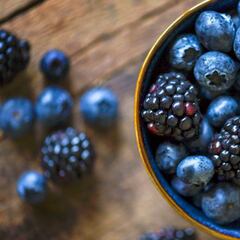Is there a danger in consuming raw milk due to bird flu infections in the US according to experts?
The United States is facing an outbreak of H5N1 avian influenza in dairy cows and other animals. Is it safe to drink raw milk? Here’s what experts say.

Bird flu is widespread among wild birds around the world and has been causing outbreaks in poultry and dairy cows in the United States, with three confirmed cases in dairy workers. According to the Centers for Disease Control and Prevention (CDC), H5N1 avian influenza has been detected in 83 cow herds in nine US states and the number of infected herds continues to grow.
Currently, the current risk to public health is low, but CDC is watching the situation carefully and working with states to monitor people exposed to animals. In addition to exposure with animals, some may question whether there is a risk of infection through raw milk and other products such as eggs. We explain what the experts say.
You may be interested in: How do you know if your cough is a whooping cough?
Is it safe to consume raw milk due to bird flu?
According to the CDC, there is concern that consumption of unpasteurized milk and products made with unpasteurized milk contaminated with the HPAI A(H5N1) virus may transmit the HPAI A(H5N1) virus to people; However, the risk of human infection is currently unknown.
“Unpublished mouse feeding studies indicate a risk of infection from oropharyngeal administration of affected milk,” the CDC warns. “Recently, HPAI A(H5N1) virus was shown to also infect conjunctival tissues of the dairy worker in Texas. If a person consumed unpasteurized milk with live HPAI A(H5N1) virus, the person could become infected, theoretically, by the virus binding to a limited amount of virus receptors in the upper respiratory tract or by aspiration of virus into the lower respiratory tract where receptors that HPAI A(H5N1) viruses can bind to are more widely distributed,” points out the health agency.
Health officials are warning Americans not to drink raw milk as bird flu spreads through cows. But some right-wing media figures are misleadingly suggesting that the product is safe or even healthier than traditional milk. And sales are growing. https://t.co/cOAUc618rx
— The New York Times (@nytimes) May 25, 2024
However, the CDC clarifies that more research is needed to fully understand the potential public health risk of consuming unpasteurized milk containing the HPAI A(H5N1) virus. Although research is inconclusive, unpasteurized or raw milk, as well as any products made with raw milk, including cheese, ice cream, and yogurt, may be contaminated with germs that can cause serious illness, hospitalization, or death.
On the other hand, “based on the current evidence from FDA, pasteurized milk is safe to consume,” states the CDC. This includes products made from milk that has been pasteurized, a process whereby milk is heated to “a high enough temperature for a long enough time to kill disease-causing pathogens, including HPAI A(H5N1) viruses.”
Is it safe to eat eggs amid the bird flu outbreak?
According to the FDA, it is safe, since “the likelihood that eggs from infected poultry are found in the retail market is low and proper storage and preparation further reduce the risk.”
According to a 2010 study between the FDA and the Food Safety and Inspection Service (FSIS), after examining the human health impact of Highly Pathogenic Avian Influenza in poultry, shell eggs, and egg products, it was determined that the risk of humans becoming infected through consumption of contaminated shell eggs is low.
Related stories
When a case of avian flu is detected in the United States, the likelihood of infected birds or eggs entering the food chain is low due to the rapid onset of symptoms in poultry, as well as measures implemented, according to the FDA.
For more details about bird flu, go to the official website of the Centers for Disease Control and Prevention (CDC), where you will find information in English and Spanish.


Complete your personal details to comment